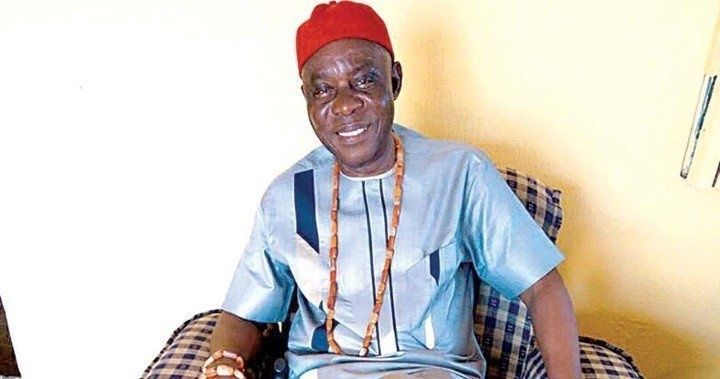Chief Eddie Ugbomah, Veteran Nigerian Filmmaker, Has Passed Away at 78
The filmmaker, whose work addressed social and political issues, died days before his scheduled surgery.
Veteran Nigerian filmmaker ChiefEddie Ugbomah passed away Saturday at a private hospital in Lagos, Vanguard Nigeriareports.
Ugbomah was days away from undergoing a surgery when he died, according to Shaibu Husseini in a statement.
He was 78 years old.
Nigeria's President Muhammadu Buharireleased a statement extending his condolences to the filmmaker, who made a significant impact on the film and entertainment industries.
"The President believes Chief Ugbomah was not only a gifted story teller but a social commentator and activist, as the themes of his stage and tube presentations explored narratives that directly impacted on many lives and advocated better government policies and programs," the statement says. "President Buhari affirms that the departed, who served as Chairman of Nigeria Film Corporation, understood film as a veritable tool for communication, and used it positively for national development."
After his primary schooling, Ugbomah went to university in London where he studied journalism, drama and film. Upon finishing college, he worked with the BBC, playing minor roles in Dr. No, Guns at Batasi and Sharpeville Massacre. He also was part of an Afro-Caribbean drama ensemble and was the director of a few of the group's plays including This Is Our Chance—which was presented at the Stoke Newington Theatre Hall.
Ugbomah then returned to Nigeria in 1975 to work in concert promotion before developing his film production company, Edifosa. Ugbomah, who hailed from Delta State and then raised in Lagos, was a director and producer known for films loosely adapted from real life events including: 1979's Rise and Fall of Oyenusi (based on the life of notorious thief Ishola Oyenusi), The Boy Is Good from the 1980s, as well as Apalara (based on the life and demise of Alfa Apalara from Oko Awo, Lagos).
His work is also known to give commentary on social and political issues. In The Mask, also released in 1979, Ugbomah touches on the looting of African artifacts by the colonizers and the longing for the return of such precious items home. This conversation and quest is still ongoing today. Ugbomah plays the lead character, Obi, who sneaks his way into the British Museum to take the Benin ivory mask and return it to Nigeria. Vanguard notes that this character is known to be likened to James Bond. Ugbomah was named chairman of the Nigerian Film Corporation in 1988.
In his later years, Ugbomah has struggled with health issues related to the brain and the funding of treatment—forced to sell his autobiography, films, documentaries, his house, car and other valuables to raise 50 million naira—and he fell short.
Nigerians have taken to social media to mourn the loss of Ugbomah.
